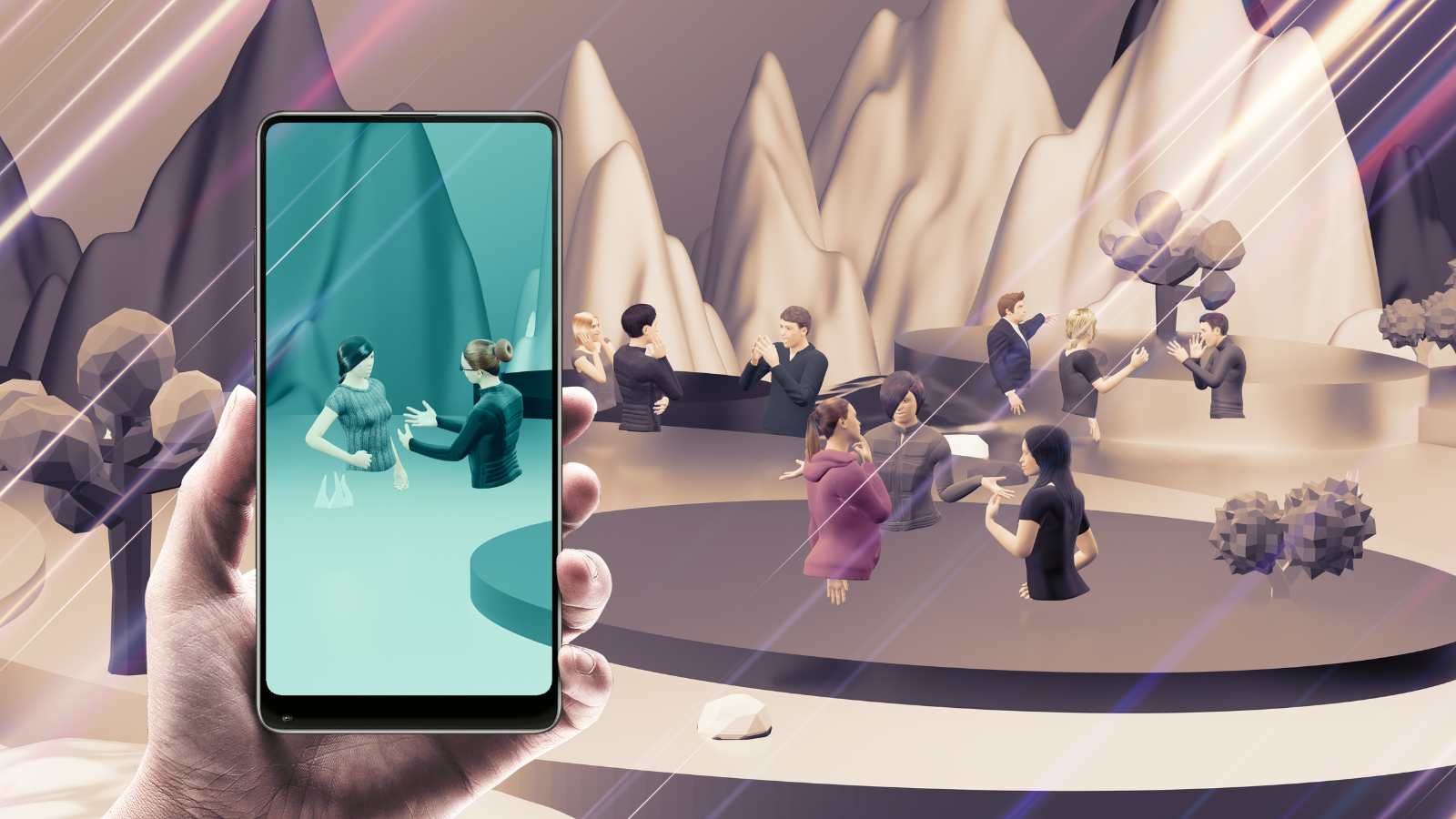Metaverse & The Tourism Industry

The Metaverse for the tourism industry is about to unveil real opportunities for the tourism and travel operators. In this article we are going to look into some of the most pressing questions around the Metaverse & the Tourism Industry:
- How will the The Travel Experience in the Metaverse look like?
- What is the The Technology we need to access the Metaverse?
- How Communication in the Metaverse will unfold?
- How do we ensure fair Accessibility for the Metaverse so that our clients can find us?
Knowledge and awareness of the Metaverse for the tourism industry is rapidly increasing as the supporting technology is being developed by high tech companies and organizations. Whilst the public perception of the Metaverse is still in its infancy, those tourism operators able to tap into understanding its potentials for the industry and the future of travel will unfold a variety of opportunities.
The Metaverse is a proxy version of your physical reality, an alternative or parallel virtual space where you work, travel, socialize. You might say, [we already have that] on line, every time we access the internet. That is indeed true, however we do this by literally standing in front of our devices, whether it’s a phone or a computer or an iPad.
In the Metaverse, the virtual experience literally takes you INSIDE the device. You do not look at the computer screen, you are IN the computer screen. This is why Metaverse experiences are fuller and more engaging.
Tourism destinations able to develop their digital twins (aka an exact copy of the destination in the Metaverse) can potentially co-create a whole range of meta-experiences whereby people’s avatars can immerse themselves ahead of traveling.
What is the Metaverse?
Think of the Metaverse as an alternative space that, in principle IS virtual, however it really is a fusion of virtual reality (VR) and Augmented Reality (AR).
What is the difference between the Metaverse and the internet?
When you browse the internet to share information, content, images, video, anything really, you do so by accessing the internet from a device. You can work, play, entertain, research, study and so much more with a device in your hand – whether is a phone or a computer or anything in between. When you enter the enter the Metaverse – you don’t browse the Metaverse – you do exactly the same things: work play study research and so on, but the difference is that you are technically IN the device.
How do you access the Metaverse?
Having said that, normally to access pretty much everything on line, you have to sign up, using your email address, and create a user profile. For the Metaverse, you do not create a profile, you create an AVATAR – a meta version of you that looks just like you want it to look – for example, you can be a bear! Or a bird, whatever you want.
What does one access the Metaverse for?
30 years ago, when the World Wide Web as we know was made public, people asked the same questions. Today what would be your answer? In time, as big tech company are building the Metaverse space for everybody to use, we will access the Metaverse just as easily as we access the internet today. And we will do the things we so easily do on the internet and MORE.
Now, let’s talk about the relation between the metaverse and the tourism industry.
Skeptical reactions have been voiced already – but let me start by saying that Metaverse experiences will not replace real life experiences, just like accessing information and acquiring knowledge from the internet did not replace going to school or college.
What would be replaced are the people that will not know how to work with it or how to harness its opportunities.
When I was getting my Metaverse certification earlier this year, I was fascinated by the multitude of applications of the Metaverse for the tourism industry and I was already seeing them happening, in a way, just not called in the Metaverse.
Think of the 360 degrees virtual tour experiences that were quickly developed during the pandemic, allowing millions of people to virtually access and experience, for example, the islands of the Maldives or the Louvre Museum in Paris without moving a single step – did this prevent them from traveling to the Maldives or to Paris when the opportunity came? Not at all, in fact, the possibility to have virtual access to their travel experiences ahead of the trip, only cemented their willingness to go.
Let’s take a look at some of the applications in the Metaverse for the tourism industry:
Having a digital twin will increase the number of meta experiences possible for avatars in the Metaverse.
A digital twin is the exact replica of a destination in the Metaverse, and can be ‘visited’ by anyone accessing the Metaverse. Today, the most famous digital twins in the Metaverse are the cities Shanghai and Singapore. In the near future, a person will access the Metaverse to seek validation for their travel choices, wanting to have a ‘deeper look’ at what the travel experience will look and feel like before confirming it.
For a tourism destination, having a digital twin in the Metaverse, will be the only way for not losing travellers to other locations and maintain market presence.
A tourism operator have a presence in the Metaverse even if the tourism destination does not have a digital twin.
A business can have a ‘shop’ in the Metaverse, an office, a place that represents it. A place to welcome avatars and offer a full customer experience ahead of their physical purchase – or by all means – a Metaverse purchase. Which is also possible.
Yes, in the Metaverse, tourism, travel and hospitality businesses will be able to sell their services and products purely to be used within the Metaverse thanks to the principle of interoperability. It means that customers are able to pay for what they buy in a Metaverse shop and take it with them when they go somewhere else across the Metaverse space.
Ok let me give you an example:
Let’s say there is a tour agency that sells tours and experiences across the Metaverse of – for example – Singapore. Your avatar can purchase the experience by paying for it with a digital wallet and then, thanks to the interoperability of the metaverse, be actually able to virtually GO to Singapore and experiencing in the Metaverse.
Imagine this is your travel agency, and that avatar is your customer. Your agency closes a sale in the Metaverse. The customer is so excited that he can wait to go to Singapore and DO it, so he comes back to your (physical) agency and purchases the trip.
Metaverse for the tourism industry will not replace travel, will enhance it.
Work with Creators to build your presence in the Metaverse.
Those building products and experiences in the Metaverse are known as ‘creators’ and for a tourism organization or hospitality operator, it is crucial to work with them to build their presence in the Metaverse.
Think of the work of travel influencers over the past years, how powerful it has become and the incredible revenue that has been generated annually on a global scale. So much so that ‘working with influencers’ has become the norm for hospitality brands and tourism organizations. Imagine the same in the Metaverse, through the work of the creators. Professionals who will be able to establish and position your brand in the Metaverse according to your brand values and proposition.
Where to find these creators? Stay tuned, as the Metaverse gets built, more creators will surely start popping everywhere.
In many ways, we have already experienced several segment of the Metaverse. We have a digital walled with google pay or apple pay. We have accessed virtual tours or 360s. We are becoming familiar with blockchain and NFTs. We showcase our brands and products on the internet every day.
Who is pioneering the Metaverse in the tourism industry today?
The island nation of Tuvalu, in the South Pacific, is set to become the first digital country in the Metaverse. Works to create the digital twin of its smallest island its already underway.
Also, the Korean capital of Seul will be developing a range of public services by using the Metaverse and the nation of Barbados has already announced its goal to have a digital embassy on the Metaverse soon.
We will be hearing more of this in the not-so-distant future, and I am excited to see more tourism operators joining forces and budgets.
Here on this blog and on my social media channels – expect to see and hear more on this topic, as a tool for the tourism industry to anticipate the future of travel and for the travel and hospitality private sector to better connect with their clients moving forward.
Listen to the full episode of “The Metaverse and The Tourism Industry” on Truth Behind Travel Podcast.

